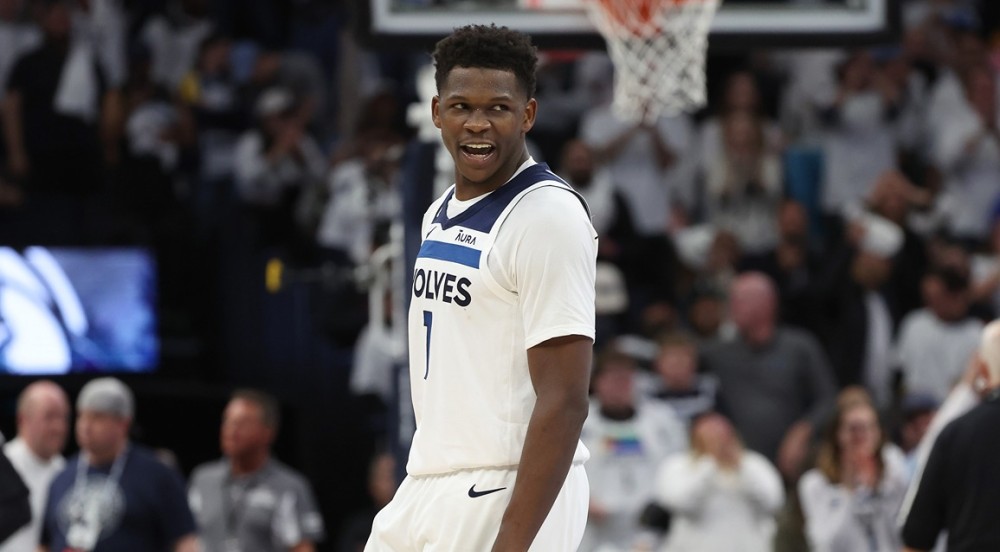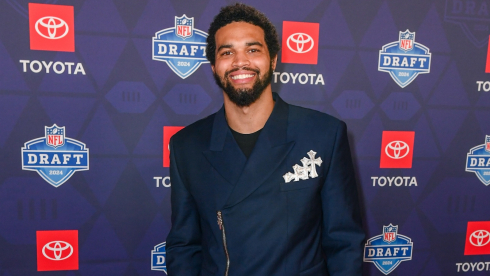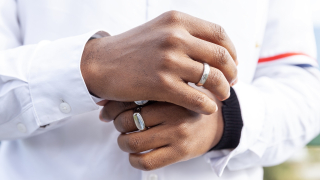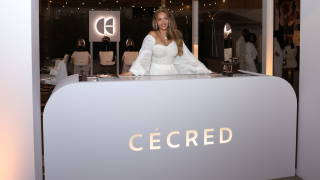The HEIR App is seeking to transform the way athletes and fans interact with each other. Co-founded by Jeffery M. Jordan—son of basketball great Michael Jordan—Jeron Smith and Daniel George, HEIR is the first product launched by Heir Inc., "a next-generation holding company that connects brands at the intersection of sports, tech, and entertainment."
A player-focused app, the digital platform allows community members to gain exclusive access to athletes and one-of-a-kind experiences.
EBONY spoke with Briana Richardson, HEIR’s Head of Product about the launch of the app, the needs of Gen Z sports fans, and the team's vision to connect athletes with their fans
EBONY: What led the team at HEIR Inc. to launch this app?
Briana Richardson: Our founders, Jeffrey, Jaron, and Daniel all know each other from Nike. It all started with the idea that athletes today have to bring their communities together on channels that they don't own. They have social media platforms, which are already regulated by the League, but they don't really have the opportunity to own the stories themselves. So when the company was founded, it was really centered on whether players should have more control over their narratives. This was actually before NIL became what it is today. The team saw an opportunity based on previous experiences that athletes don't get the flexibility and the control that they should have for how much value they bring to their sports. So there was a high emphasis on evolution from the athlete's perspective. We wanted to make it easier for these athletes to bring their own communities together through a channel where they have maximum control. Now their content reaches them, and they’re able to monetize it, however, they see fit.
Can you speak to how Gen Z fans are underserved in the sports world and how HEIR serves this demographic?
HEIR is at the epicenter of Gen Z sports culture. We found that Gen Z consumers are so different from other consumers, and that's not just for sports, but for everything in every industry. They want to have an experience that's very different from what consumers had before. In sports, we feel like there are some definitive points that we've heard from our consumers that we really leaned into when we were building the app. So the first thing we learned is that with Gen Z-ers, you have eight seconds or less, short attention span You really can't have these long-drawn-out videos. That's why TikTok, Snapchat, and Instagram Reels are so popular.
We focus on just highlights and being able to catch the biggest moments of the night before, We also focus on the player first versus the team or the league. A lot of Gen Z consumers, or Gen Z in general, look to identify more on a personal level. So the way we deliver our entire experience is through the lens of the player. Whether that's looking at content or stats, we view it through the lens of the player first.
Would you say that sports fans today want to be more interactive with athletes than previous generations?
Yes, personal connection is big for them. If you think about sports and the way it's consumed right now, you and I could jump on any of these apps, and it would be a solo experience. We could both be on ESPN right now and know that both of us are on ESPN doing the same thing. The difference with HEIR is that it centers on the fact that Gen Z loves community. They want to find homes virtually or find other people that are similar to them, the same way of describing athletes. So we very much focus on having that experience on our app as well.
NBA stars Anthony Edwards and Lonzo Ball are featured athletes on the app. How did they become a part of HEIR?
Jeffery, Jaron and Daniel have known Anthony and Lonzo for many years. They fell in love with that ownership piece. If you think about it, a lot of athletes may have their own signature line of clothing or other endorsements. But we think today's athlete wants more freedom to express themselves and the freedom to control how they can express themselves. When you look at their social media, it's more like fulfilling obligations that they may have with other partnerships. But we position it to them as an avenue for them to be themselves. A human first and an athlete second. Anthony and Lonzo were drawn to those ideas.













